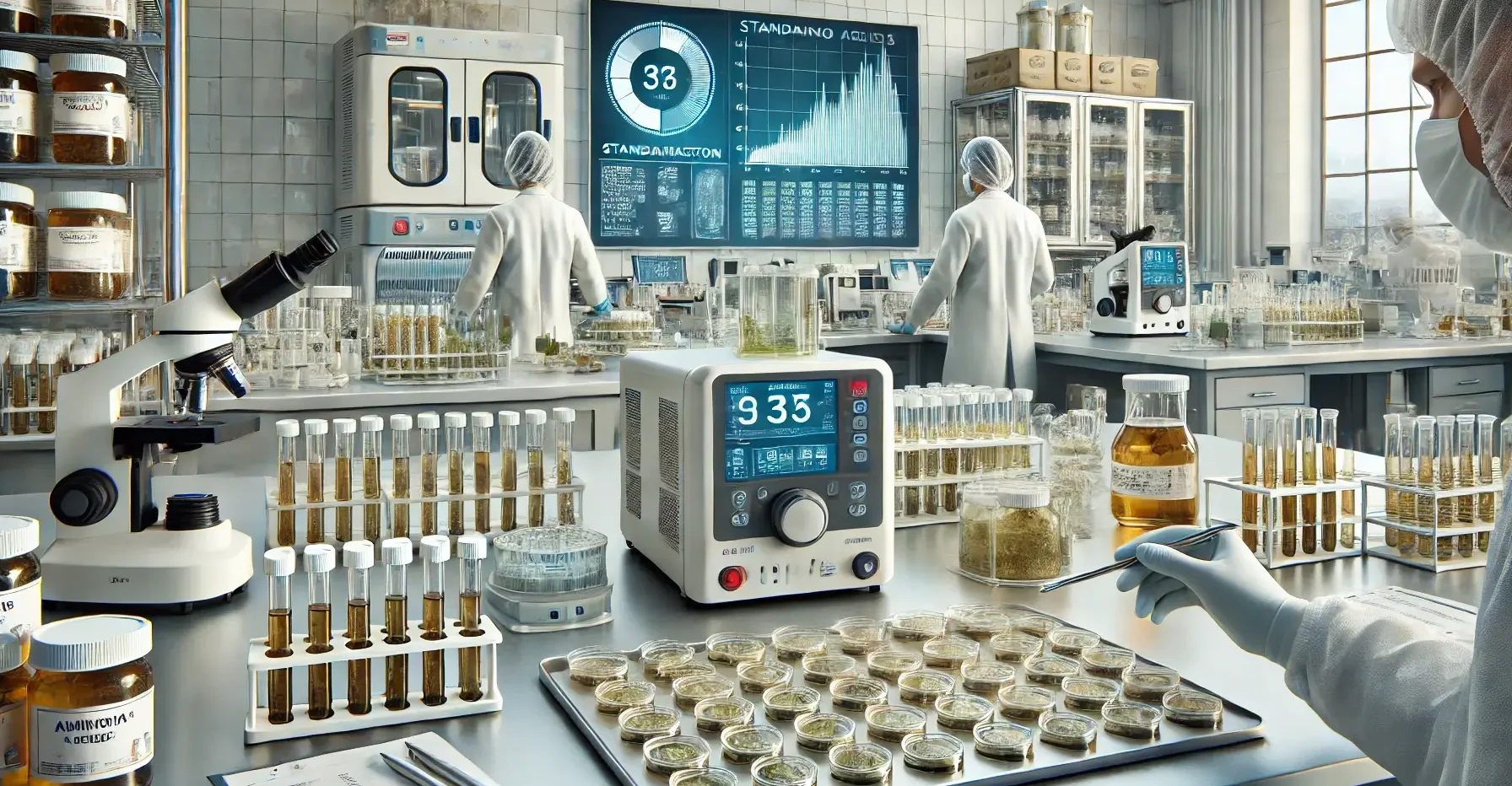- Methods for Standardization of Amino Acids is the Standardizing amino acids using microbiological assays involves measuring the response of specific microorganisms that require particular amino acids for growth.
- Here’s an overview of the methods typically used for this purpose:

1. Titrimetric Methods for Standardization of Amino Acids
-
Principle:
- Based on the diffusion of amino acids through an agar medium and their effect on the growth of a specific microorganism.
-
Procedure:
-
Preparation:
- Inoculate an agar plate with a standardized suspension of an amino acid-dependent microorganism.
-
Application:
- Place wells or paper discs containing the amino acid samples on the agar surface.
-
Incubation:
- Incubate the plates to allow bacterial growth and amino acid diffusion.
-
Measurement:
- Measure the diameter of growth zones around the wells or discs.
-
Comparison:
- Compare the growth zones with those produced by standard amino acid solutions to determine concentration.
-
Applications:
- Commonly used for determining the concentration of essential amino acids in samples.
2. Turbidimetric Assay Methods for Standardization of Amino Acids
-
Principle:
- Measures the growth of a microorganism in a liquid culture medium by assessing the turbidity (cloudiness) of the medium, which correlates with the concentration of the amino acid.
-
Procedure:
-
Preparation:
- Prepare a series of test tubes with a liquid growth medium containing varying known concentrations of the amino acid to create a standard curve.
- Inoculate each tube with a standardized amount of an amino acid-dependent microorganism.
-
Sample Testing:
- Prepare additional test tubes with the same growth medium and inoculum, adding the unknown amino acid samples.
-
Incubation:
- Incubate all tubes under controlled conditions (temperature, time) to allow microbial growth.
-
Measurement:
- Measure the turbidity of each tube using a spectrophotometer at a specific wavelength.
-
Comparison:
- Compare the turbidity of the test samples with the standard curve to determine the concentration of the amino acid.
-
-
Applications:
- Suitable for determining concentrations of amino acids such as lysine, methionine, and tryptophan.
Click Here to Watch the Best Pharma Videos

